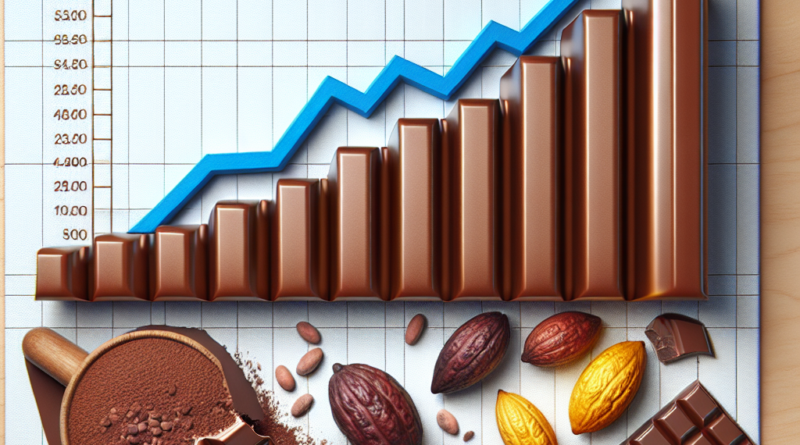Chocolate crisis: soaring cocoa prices sound the alarm
Rising Cocoa Prices in 2024
In the early months of 2024, the price of cocoa has skyrocketed, drawing attention once again to agricultural commodities.
With global inflation kept in check and central banks trying to reduce the cost of money following record interest rates, upward movements in commodity prices are causing concern.
The transfer of higher costs from producers to consumers could potentially drive inflation up once again.
Reasons Behind the Increasing Cocoa Prices
There is increasing pressure on cocoa prices within the global agriculture sector, particularly affecting cocoa beans.
Several factors are contributing to this pressure.
West Africa, which produces the majority of the world’s cocoa supply, has been hit by crop diseases and lower prices paid to farmers at the point of sale, known as “farmgate pricing,” prompting them to opt for more profitable crops such as rubber instead of cocoa.
According to a May report by Rabobank, this season’s cocoa harvest is expected to record the largest deficit in six decades.
Challenges and Potential Solutions for the Industry
The surge in cocoa prices this year has been historic, but it is likely not the last time that food companies will find themselves paying more for this commodity.
Analysts are already forecasting another cocoa shortage next year, although it is expected to be less dramatic than this season’s.
However, systemic issues such as government-controlled pricing at production levels and climate change are likely to continue to negatively impact the harvest.
Furthermore, the use of child labor and slavery in West African cocoa plantations has led to legal actions and scandals for confectionery companies.
In the long term, this means that many companies will need to seek more permanent solutions.
In some cases, this may involve alternatives to cocoa.
Adapting to Rising Cocoa Prices
For now, many of the largest confectionery companies such as Hershey, Mars (the producer of M&M’s), Ferrero (owner of Kinder), and Mondelez (creator of Cadbury) are likely shielded from rising cocoa costs due to long-term contracts that lock in prices for key raw materials to protect them from events like this.
This gives them some time to address the issue.
But by 2025, they will likely end up paying much more for their cocoa.
Recent earnings statements from Mondelez and Hershey executives suggest that market speculation is at least partly driving the cocoa surge.
Prices may drop by September once more information is available on the new crop, but that does not mean they will return to normal.
J&J Snack Foods CEO Daniel Fachner is carefully monitoring cocoa and chocolate prices.
The company owns brands including Dippin’ Dots, SuperPretzel, and Hola Churros.
Chocolate is a common flavor in its portfolio, which includes treats like a chocolate-filled churro.
Fachner has proposed a hypothetical solution that may involve reducing the number of chocolate chips from 12 to nine in a specific product.
He also mentioned that J&J is exploring potential substitutes that could work for some of its recipes.
Companies that do not primarily deal with chocolate may start shying away from the flavor, especially when it comes to new products.
Startups like Voyage Foods and Win-Win have produced chocolate without cocoa using alternatives such as grape seeds and legumes.

